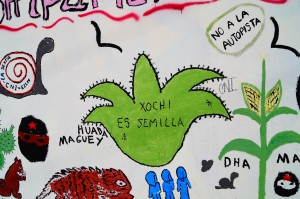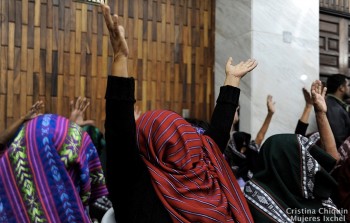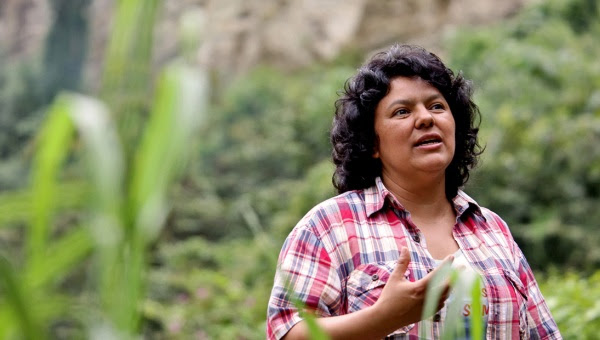Sorry, this entry is only available in Español. For the sake of viewer convenience, the content is shown below in the alternative language. You may click the link to switch the active language.
GUATEMALA: MARCHA POR EL AGUA LLEGA A SU FIN
Texto de Susana Norman y fotos por Ingrid Fadnes (Centro de Medios Independientes-Guatemala)
En Guatemala, La Marcha por el Agua, la Madre Tierra, el Territorio y la Vida, convocada por unas 80 organizaciones que integran la Asamblea Social Popular (ASP), está llegando a su recta final. La marcha comenzó en el punto fronterizo con México, Tecún Umán, el pasado 11 de abril, y los y las manifestantes ya han recorrido a pie más de 200 kilómetros por el caliente asfalto de la carretera CA2 de la costa sur de Guatemala, en su camino hacia la capital del país. Con 10 días bajo el sol ardiente, cargando bebés en la espalda, y dejando atrás más de 30 kilómetros a cada día, la llegada a la Ciudad de Guatemala está previsto para la tarde del viernes 22 de abril. Se juntarán también las otras contingencias, marchas menores que han salido de Purulhá en Baja Verapaz (norte), y Mesilla en Huehuetenango (occidente).
La exigencia que aglutina tanto a comunidades indígenas, organizaciones barriales urbanas y feministas es la preservación de los ríos, las lagunas y los manantiales, porque sin agua no hay vida para nadie. Vemos en la lucha por el agua, una de las demandas más urgentes a nivel global, pero además un llamado estratégico para alentar a la sensibilización, a la organización, y a la solidaridad, ya que la falta del agua se siente en las ciudades y no solo en el campo. Durante el trayecto se ha denunciado la contaminación y los desvíos de los ríos; el despojo ilegal de agua y territorios por parte de las empresas transnacionales de monocultivos como palma, azúcar, banano y café y por las empresas mineras e hidroeléctricas. La marcha plantea que 97 por ciento de las fuentes de agua dulce ya están contaminadas en el país a la par de sufrir el avance de la desertificación en una quinta parte del territorio.

“Uno de nuestros objetivos es sensibilizar a la población en general. Es necesario que nos unamos, tanto como como pueblos mayas, garífuna, xinca y mestizo, que somos los cuatro pueblos aquí en Guatemala. Que nos unamos a esta gran lucha por la recuperación de los ríos. Que el agua no sea más privatizada. En las comunidades que hemos pasado durante los días de la marcha, hemos visto como la población en general está sufriendo por el agua. Son alrededor de 50 ríos que hemos pasado, pero casi todos están secos, y se miran son las piedras, o están desviados a las empresas de monocultivo de caña. En esta zona estas empresas se concentran, y son entre 6 y 10 ingenios azucareros sólo aquí. De parte de la población más urbana denuncian que les llegan las facturas con montos grandes a pagar, sin embargo, el agua no les llega. Vemos que esto es un grave problema a nivel nacional. Queremos que las comunidades, los cantones y los barrios a nivel urbano y en el campo se organicen y denuncien esta violación a los derechos que hacen estas empresas con la complicidad del gobierno”, cuenta Maria Josefa Mac, mujer maya q´eqchi, e integrante del Consejo Directivo Nacional del Comité de Unidad Campesina (CUC), una de las organizaciones que integran el ASP.
(Continuar leyendo…)











